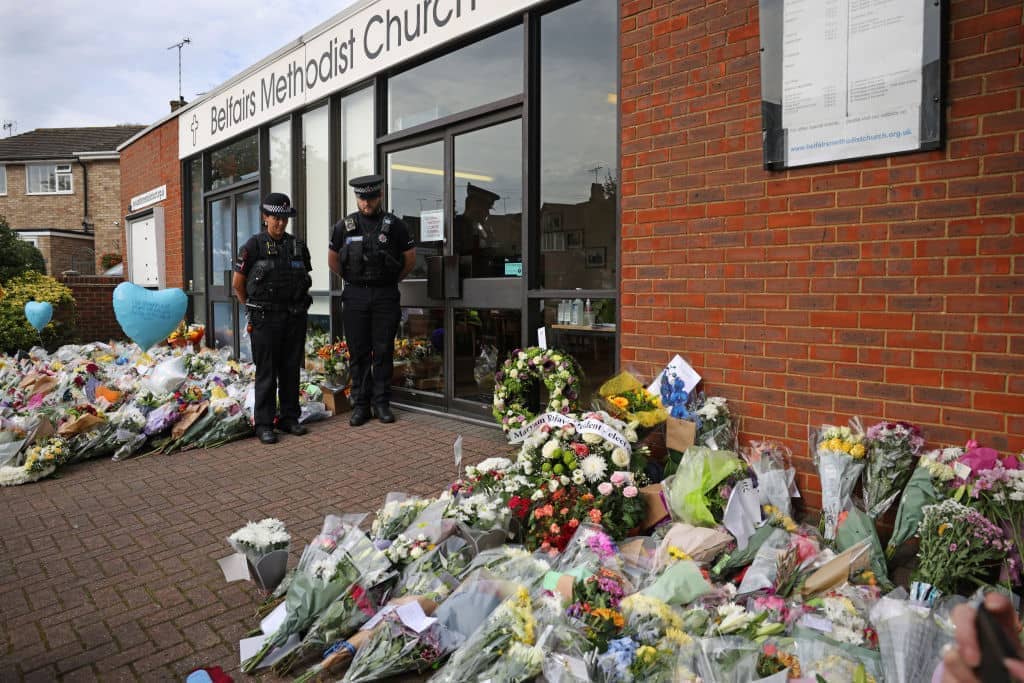After the assassination of Jo Cox by a white supremacist, there was an angry insistence from progressives and the mainstream (the two were not yet the same) that the threat of the far-right be confronted. Questioning the role played by mental illness or even terming the assassin a ‘loner’ was framed as an attempt to shift the focus away from the killer’s motive. There was a mini moral panic over whether the culprit was being labelled a terrorist or not.
The Independent ran a grievance-dripping op-ed under the headline: ‘Why are we so reluctant to label white attackers as terrorists?’ The author objected to ‘humanising perpetrators of violence and terror who happen to be white’ and complained that Cox’s murderer ‘will be described as a victim of inadequate mental health care’. The Guardian’s Roy Greenslade said the coverage ‘raised questions about the political agenda of certain pro-Brexit newspapers’, citing the Sun’s description of him as ‘a mentally ill loner’. If there’s anyone who knows about reporting on terrorism with journalistic integrity, it’s Roy Greenslade.
As ever, political elites are talking about what they want to talk about rather than what is in front of them
In the wake of the killing of Sir David Amess, there has not been the same determination that everyone hone in on the same explanation or even ask what inspired the alleged killer. In fact, the progressive and mainstream media are seized with the idea that the proper response to Friday’s outrage is a clampdown on social media and people being generally disobliging to MPs. As yet, no one has explained what role social media anonymity played in this incident and, if it did, why the general public has to surrender a little more of its freedom and privacy. As ever, political elites are talking about what they want to talk about rather than what is in front of them.
As Sam Leith notes, in the immediate aftermath of Sir David’s killing, some social media right-wingers tried to link it to Angela Rayner’s denunciation of Tories as ‘scum’. That was a gammon opinion, said people who are otherwise adamant that hateful speech (which generally means speech they hate) not only causes violence but is violence. Then came the reports of the suspect’s identity and of his suspected motive. No sooner had right-wingers dropped their line of attack than progressives and mainstream commentators scooped it up. Now the gammon view — that political rhetoric was to blame — was the enlightened view, except rather than Angela Rayner, it was anonymous social media users behind it all.
Where I dissent from Sam’s analysis is his assertion that ‘the murder of David Amess… may not have very much to tell us about anything’. If the party responsible for Sir David’s death was indeed motivated by extremist ideology, the crime will tell us rather a lot about a great many things. For one, it will mark the first time an MP has been assassinated by someone espousing that ideology, though not the first attempt. It will also be, as best as I can tell, the first attack of its particular bent to take place inside a British church. It may also confirm how inadequate Britain’s counter-extremism programme is.
Moreover, it may tell us that we still lack an answer to the problem of British-born youths being attracted to an ideology of impotent self-pity, imaginary victimhood and violent supremacism. It will tell us that however assiduously our political and policing leaders, news media, and academics try to convince themselves and us otherwise, terrorism remains a major threat to Britain. It will tell us that we are so far on the back foot that we cannot bring ourselves to name the problem.
The problem is Islamism. Whether it proves to have been a motivating factor in the death of Sir David — something that will be for the courts to determine — it remains an ever-looming threat. It is not alarmist to acknowledge that. It is not unhelpful at a sensitive time. It does not stigmatise Muslims. (Incidentally, the finest tribute I’ve yet seen to Sir David came in a joint statement from his local mosques, whose respective leaders spoke of losing ‘an upstanding friend’ and ‘a family friend and mentor’.)
The Home Secretary and progressives find themselves in an odd alliance. She would rather talk about the failings of social media than the failings of her department and the vast apparatus of monitoring, policing and security she oversees, an apparatus that has been found wanting once again. Progressives want to talk about social media because it is a more comfortable topic than Islamism and because it speaks to an elite anxiety that the proles have rather too much say these days and need to be brought back under control. If Sir David is indeed dead because of a violent political movement born out of Islam, no answer that refuses to begin with this fact has any credibility.
If Islamism drove the attack on Sir David, we should be no less prepared to face up to that ideology than the neo-Nazi one that drove the terrorist attack on Jo Cox. No matter how deeply in denial our leaders remain, Islamist extremism is an ongoing threat to British lives and the British way of life. It must be confronted and smashed without mercy.






